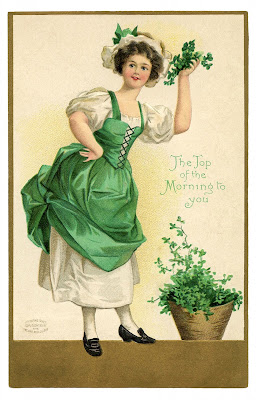It's one of those expressions like "familiarity breeds contempt" and "lion's share" that no one uses correctly anymore.
From time to time somebody even observes: "Why would you want luck o' the Irish? Historically the Irish have pretty terrible luck."
That, friends, is actually key to the saying.
Correctly, when someone talks of Irish luck or luck o' the Irish, it doesn't mean luck.
As one 1838 book put it, "Irish luck -- which means anything but chance."
In other words, if you say someone got something through Irish luck, it means he got it through something other than being lucky. It might mean hard work, it might mean bribery, it might mean trickery, but not luck. Anything but luck is Irish luck.
Irish author Blindboy Boatclub relates on his podcast the local explanation for the phenomenon:
In Limerick we just believe that bad luck happens to us all the time. Nothing can go right for Limerick, and anytime anything goes bad, we just say ‘That’s The Curse of St. Munchin.’ And it comes from an old folklore story from the 7th century: St. Munchin — St. Mainchín — the patron saint of Limerick. And the story goes, the myth goes, that St. Munchin was trying to build his church in Limerick, himself, and a couple of angels that were helping him out. And they were lifting rocks and stones and digging foundations to try and build this church. But the people of Limerick, in the 7th century, just walked by. And when St. Munchin asked for help, ‘Please, Limerick! Help me build my church!’ — the people of Limerick were too lazy. Didn’t give a shit. They said, ‘Fuck you, Munchin. Build your own church! With your silly looking angels!’ So then he put a curse on Limerick. And St. Munchin’s curse basically said, you know, that Limerick would never have good luck.This tale underscores the notion that "Irish luck" is a euphemism for relentless adversity rather than fortuitous events. It's a reflection of a cultural narrative where perseverance in the face of hardship is more common than strokes of good luck.
